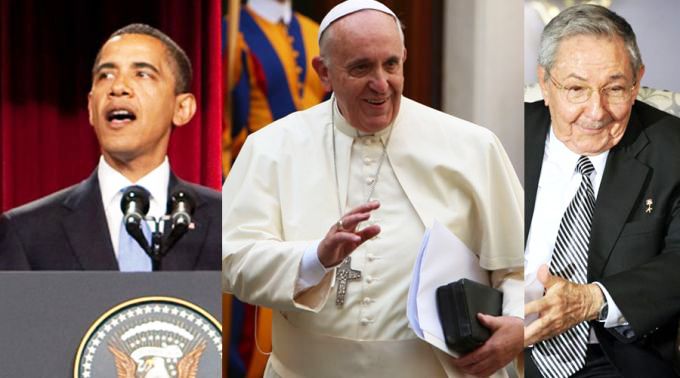Just like hybridization and “heterogeneous disjunctures” within the media and film industries, it seems that Catholicism is facing a similar phenomenon: it has increasingly become ‘nationalized’ within the broader pattern of a globalized Catholic Church. Despite its centralized nature and hierarchical structure, José Casanova suggests it is being re-signified and partially redefined by local communities around the world, who often conduct their own national conferences. Thus, while the Church gains terrain in the international field, it is also strengthening its influence at a more local and national level.

It was interesting to draw the parallels of what Casanova wrote almost 20 years ago: the pope was a mediator between US and Cuba to rebuild diplomatic relationships; Pope Francis has become a world-renown activist and human rights’ advocate; and back home in Colombia there are many new programs and projects being conducted by the Catholic Church, illustrating its increase in strength.
Globalization of media, transnational capital, and porous national borders have allowed this phenomenon to take place, but just as is the case with the ‘Asian experience’ referred to by Susan Strange, the rise of Catholicism also dates back to the Cold War. Even though the Church had regained influence in the 19th century (as stated by Casanova), it was in aligning itself with the Christian Democratic West that it entered fully into modern global dynamics. This allowed it to assume the “vacant role of spokesperson for humanity, for the sacred dignity of the human person, for world peace…,” to lead the movement for human rights, and challenge the authority of states by a voluntary for of disestablishment (416).
A recurrent pattern begins to be drawn as we move through the class: the Cold War sets the precedents for modern globalization (2.0); technological advancements facilitate cross-cultural, cross-border exchange; people fear cultural homogenization due to imbalanced power dynamics; and movements/phenomena readapt to the global playing field, re-signifying/claiming their experiences in a sort of resistance to imposed cultural imperialism. Where are we heading now? Will other countries start to jump in and partake more in the transnational cultural arena, making globalization a much richer process? Or will certain power structures persist and perpetuate certain cultural hegemonies?
